Will Ofsted be less independent without Wilshaw?
- Published
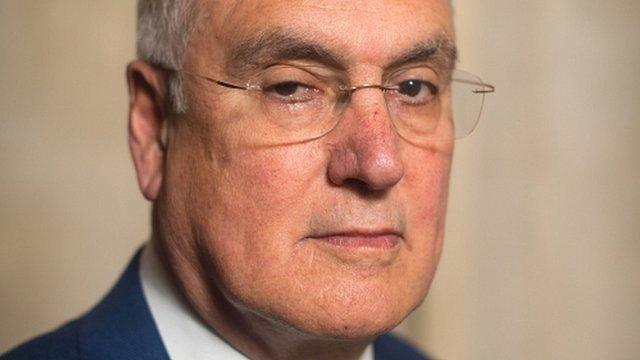
After Sir Michael Wilshaw steps down will Ofsted have a less independent voice?
Her Majesty's Chief Inspector of Education, Children's Services and Skills - otherwise known as the head of Ofsted - is in the process of changing identity.
Rather like the arrival of a new Doctor Who, the role is the same, but it will look and sound completely different with someone else playing the part.
Apart from some rubber stamping - or an unforeseen political earthquake - the next Ofsted head will be Amanda Spielman, who has been formally recommended by the Education Secretary Nicky Morgan.
It will also mean the departure of Sir Michael Wilshaw, who has become the dominant figure in England's education landscape.
Outspoken and independent, he outlasted the previous education secretary, Michael Gove, and often outgunned the current incumbent Mrs Morgan.
There was little secret about the Department for Education's irritation at Sir Michael's readiness to speak uncomfortable truths that could clash head-on with flagship ministerial policies.
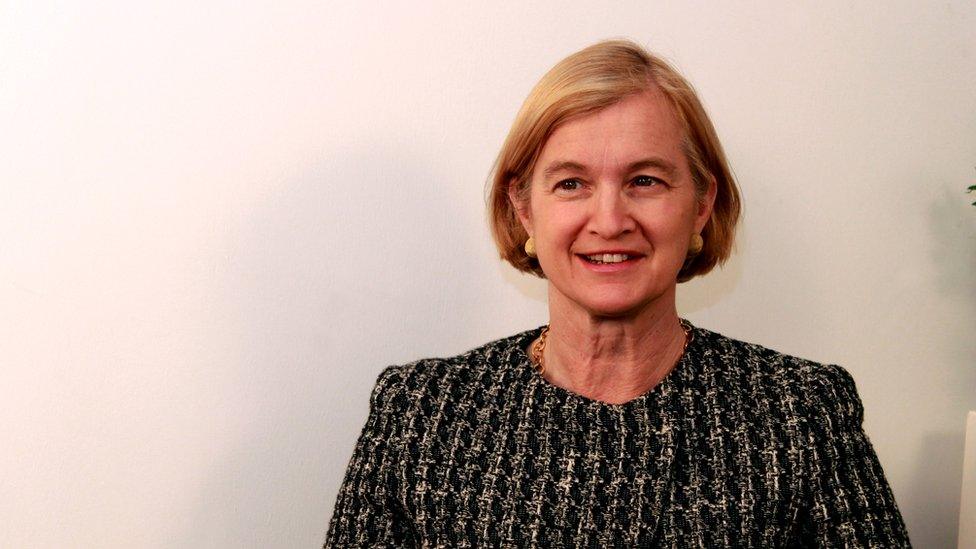
Amanda Spielman, the next head of Ofsted, helped to set up a successful academy chain
Before the announcement of the ill-fated plans to force all state schools to become academies, Sir Michael's comments about academy chain shortcomings infuriated the education department.
In fact, the only people more worried than ministers about Sir Michael's straight talking were his own press handlers.
Because in a political culture of private briefings, placed stories and pre-formatted comments, he spoke openly and was ready to explain and defend his views.
He overshadowed ministers because he didn't talk in the shadows.
Maverick traditionalist
Despite the talk of transparency, anything approaching old-fashioned press conferences, where education ministers could face scrutiny on their policies, are now as rare as hen's teeth.
But his shooting from the hip also made Sir Michael a very controversial figure.
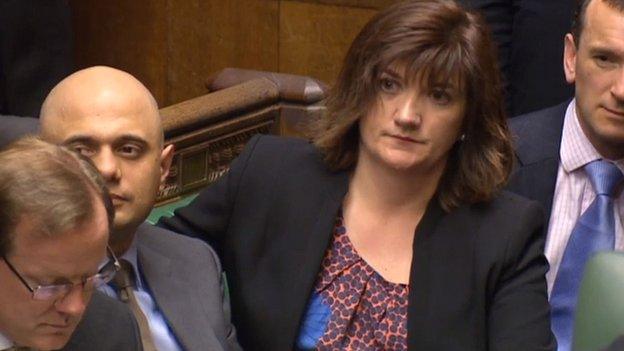
Nicky Morgan has endorsed Amanda Spielman as her preferred candidate to head Ofsted
Teachers' unions regularly accused Ofsted of putting unfair and counter-productive pressure on teachers.
There were also very robust run-ins with the private school sector, with independent school leaders left fuming by the Ofsted chief's accusations that they only wanted to share the "crumbs from their table" with state schools.
Sir Michael has said the credibility of Ofsted depends upon its independence - and he managed to make it very difficult to put him into any political pigeon-hole.
He was both a traditionalist and a maverick.
He often criticised the progressive, left-wing theorists running London schools in the 1970s and 1980s. But at the same time was sceptical of those right-wing ideologues eager to outsource as much as possible of the education system.
If there was one thing that defined his time as chief inspector, it was his decision to scrap the word "satisfactory" in Ofsted grades and to replace it with "requires improvement". It was at once arbitrary, absolutist and at the same time ambitious.
Anything less than good would not be good enough for state school pupils under his watch.
Backroom operator
So what's going to be different when Sir Michael goes?
There is certainly going to be a change in style.
Sir Michael Wilshaw has been front-of-house for most of his working life.
Before running Ofsted, he spent 26 years as a head teacher in London secondary schools, making his name in high-profile efforts to improve schools in deprived areas.
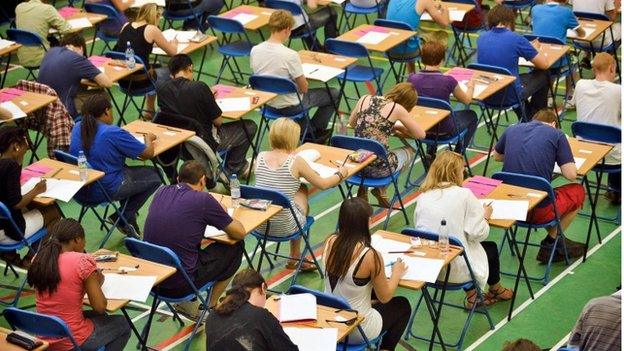
Amanda Spielman was chair of exams regulator Ofqual during changes to GCSEs and A-levels
Amanda Spielman has been a backroom operator, helping to set up the widely-praised Ark academy chain and as the chair of the exam regulator, Ofqual.
At Ofqual, when the exam regulator got tangled up in knots over changes to qualifications, she seemed to be a thoughtful and calming figure in the background.
Heads were deeply unimpressed by Ofqual's approach to exam grades, but Ms Spielman managed to stay above the fray.
But even before she has been officially given the Ofsted job Ms Spielman has been criticised by teachers' unions.
What type of watchdog?
While the unions were not exactly enthusiastic fans of Sir Michael, they couldn't argue with his 43 years teaching experience.
But they have complained that Ms Spielman, a Cambridge-educated former accountant, has never been a teacher and is too close to the academy chain lobby to be impartial.
While she will expect to be attacked from the left, the most pressing challenge for Ofsted is likely to come from the right.
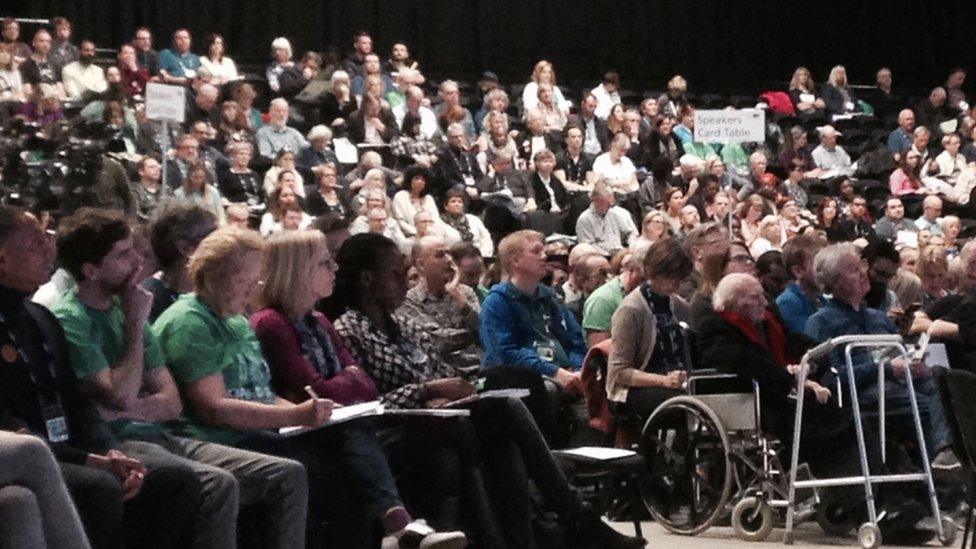
This Easter's NUT conference: Teachers' unions have often criticised Sir Michael and Ofsted
Sir Michael has been a formidable roadblock to deregulating a publicly-accountable state school system.
Even as a former academy head, he was much more interested in scrutinising the practical outcome rather than the ideological intent.
When the government didn't want Ofsted to inspect academy chains, he effectively got round this by ordering mass inspections of their schools.
Like many great head teachers, he walked the fine line between being relentlessly single-minded and being accused of tunnel vision.
And there will be calls to use his departure as an opportunity to "cut Ofsted down to size" and to keep the regulator in line with government policy.
This will be a tough challenge for Ms Spielman.
The role of education watchdog usually brings with it a raft of canine metaphors - and she won't want to be seen as the government's "poodle" or an "attack dog" for academy chains.
She also faces the rising challenge of what is in effect a parallel set of regulators, the regional school commissioners, who are officials appointed by the education department and likely to be much more docile to the demands of ministers.
The job of maintaining school standards is an intensely political balancing act.
Like a regenerating Doctor Who, Ms Spielman will have to escape the comparisons with previous incarnations and make sure she isn't upstaged either by the daleks or the zombies.